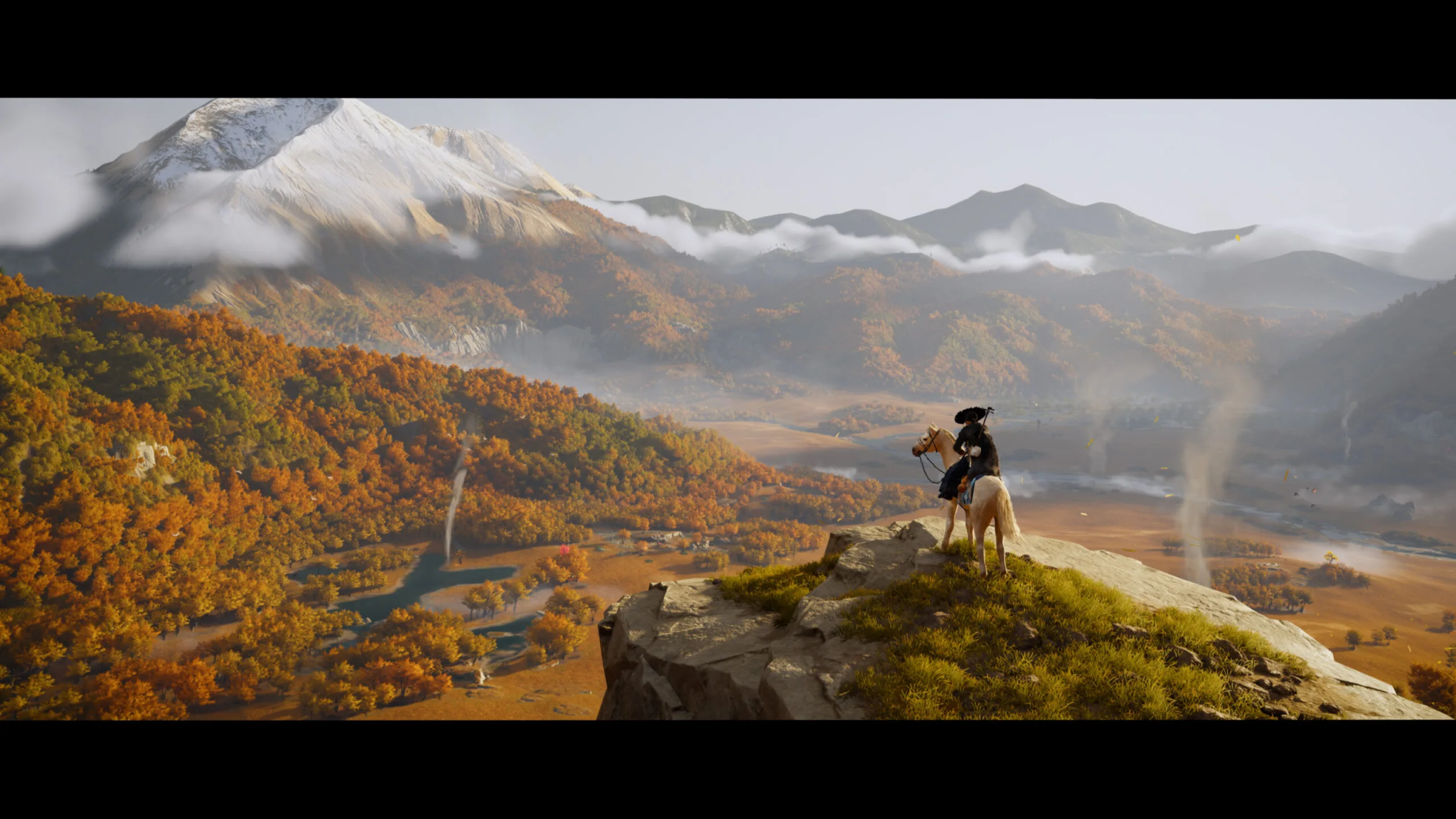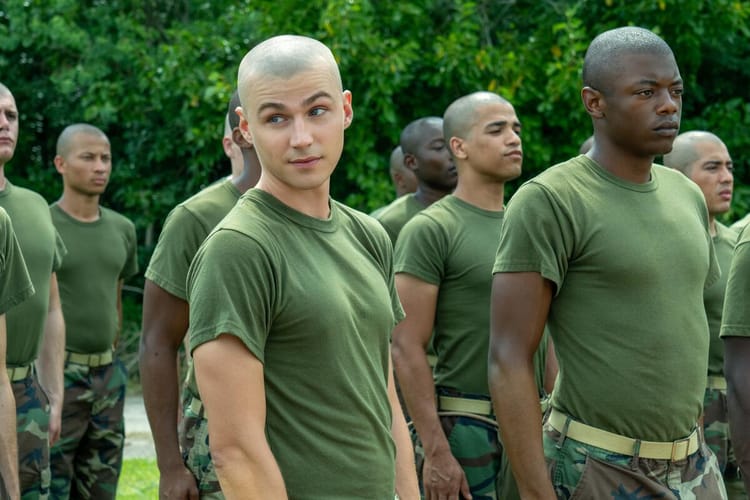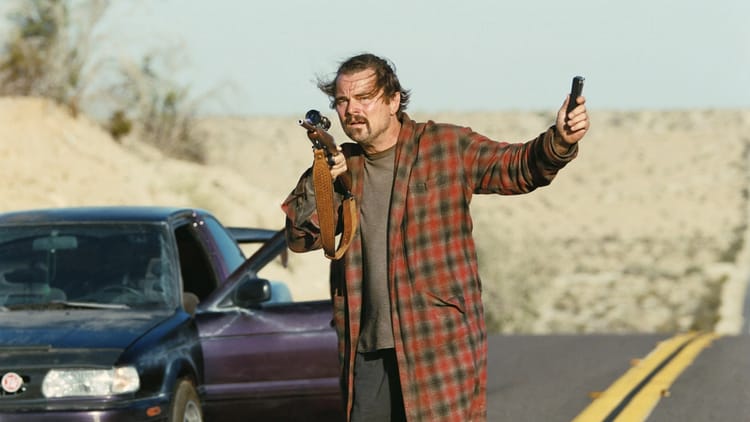Critical Corner: Roofman, The Ghost of Yōtei

In this edition of Critical Corner, reviews of Channing Tatum's new film Roofman and new PS5 exclusive Ghost of Yōtei.
I’m a sucker for films about the “American Dream”, which could just as easily be rebranded the working class dream. The idea that if you work hard enough and do your part, you can make your way in society. Or, put more broadly, the idea that good things come to good people. The best of these films are inevitably about people who think they’re good but actually aren’t, people who continually fail at doing the “right thing”, and often a mixture of both.
Roofman, theoretically a biopic but more interesting in nearly every way than a traditional one, is based on the life and crimes of Jeffrey Manchester (played here by a now reliably excellent Channing Tatum), most famous for his robbing crime sprees which involved him drilling through the roofs of various businesses while he acquainted himself with the smalltown community. Most notably, he ingratiates himself into the life of single mother Leigh (Kirsten Dunst), an employee of the Toys “R” Us, and finds his ability to keep up his routine of scamming, robbing, and pretending to be a law-abiding citizen lacking.
The stakes of Roofman are high, but director Derek Cianfrance (of the all-timer romance bummer Blue Valentine) keeps the tension at just the right level of chill. A simmer, if you will. He films Jeffrey’s low-stake heists with all the flair of an action director, but the most interesting sequences are how he captures the day-to-day drudgery of life in North Carolina. He attends church services, including a charming singles brunch where he is the only man in attendance, and ends up in an unbearably sweet relationship with Leigh, who understandably falls for Jeffrey because he’s charming and he also happens to look a lot like Channing Tatum.
Starting with Magic Mike (and perhaps 21 Jump Street), Tatum has found his niche as an actor. He’s not an everyman but he’s found roles that fit around his tics and tricks. You know, the way that real stars do, or used to do. His version of Jeffrey Manchester employs the same kind of flirting that he did as Mike – chin lowered, eyes darting around, voice barely above a mumble – but he layers it this time around with a barely submerged anxiety. By the time Jeffrey is living in the Toys ‘R’ Us, you feel that if he believes hard enough, he’ll get away with it all.
Most impressively, Tatum goes toe-to-toe with Dunst, who remains one of the most interesting and compelling actors of her generation. It’d be extremely easy for her to play Leigh as dimwitted or blinkered by Jeffrey’s charm, but instead she plays to the height of the character’s intelligence (as she always does, frankly). She’s always as skeptical of Jeffrey as she needs to be, and it’s in her performance that we really get the tragedy of both of these characters: if they believe hard enough in something they know to be too good to be true, can’t it be true?
There are a few off beats in Roofman – some of the supporting performances, particularly Juno Temple and Peter Dinklage, come from a bigger, wackier movie – but when Tatum and Dunst are allowed to play out their quite obviously doomed love story, it’s at its best. It’s a little bit funny, a little bit sad, and a little bit stressful. In that way, it’s a perfect depiction of making the best out of a bad situation (even if it’s a self-inflicted one).

Remember Ghost of Tsushima? It came out in 2020, was a massive hit, and then quietly disappeared as people memory-holed everything that happened that same year. It was an unfair fate. The game was far from perfect, but it made enough sly innovations to the open world formula, conceding to the Ubisoft recipe of scattering things around the map while also having a deep focus on combat. It was slick and competently made, which is just what we needed in the dull, cold winter of the pandemic.
Ghost of Yotei takes the same vague frame as Ghost of Tsushima – a sole protagonist with a single-minded bloody mission – and throws it a couple of centuries into the future, to the early Edo period of Japan. It has an audacious opening too; Atsu (voiced by an on-form Erika Ishii, who people probably know from various Dropout TV projects) is left for dead after Lord Saito and his five underlings murder her entire family for a perceived slight, but she is left pinned against a burning tree by Saito. The game picks up sixteen years later, with Atsu returning to her homeland with revenge in mind: The name of the seven men who killed her on a sash. It’s more than a little bit similar to Kill Bill, and the Yōtei seems to cater to that comparison a lot.
The best bits of Tsushima are all here. The game looks absolutely gorgeous, and Sucker Punch continues the UI-light design to make sure the player really experiences the full scale of the beauty. The setting, whether it’s realistic or not, also paints with as many colours as possible. The game is split into several hubs, with one colour dominating each – golden, red, white, pink – and thankfully it looks more artistic than realistic. The combat here is also a genuine step up, although it plays on the now tired system of “wait-to-parry-strike-for-maximum-stagger”, but the array of weapons on offer prevents monotony for the most part. Rinse and repeat for roughly 30 hours, and you’ve got Ghost of Yōtei.
While Yōtei is ultimately a slicker beast than its predecessor, the exact same flaws nag at it. First and foremost is a repetitiveness that drags both the gameplay and the narrative down. While the main missions are ambitiously and thrillingly well-designed, a tremendous amount of character progression is locked behind side missions and exploration that quickly becomes tired. There’s only so many times you can follow a fox down a path, or a wolf across a field, before it starts to feel like a game padding it out.
It also puts the game at odds with a seemingly urgent narrative, that Atsu has to kill the Yōtei Six before its too late, and the land of Ezo is conquered by them. That narrative also plays on familiar beats. Roaring rampages of revenge can sometimes allow for a wide range of emotion – you need only watch the Kill Bill films back to back to see that – but too often it locks characters into recitations of anger and stubbornness. Yōtei puts Atsu in that emotional box very early on, so much so that the eventual culmination of her narrative becomes obvious. She’s going to realise that revenge has a massive cost, and make a choice either way. Yōtei throws a few twists, but it ends up in the same, deeply familiar place that so many revenge narratives end up in. Surprise is not within the game’s range, and it seems to be aiming much more for comfort and familiarity than it does freshness.
Strangely, in a way, Yōtei feels like a throwback to a lost era. The games that came to mind while I was playing wasn’t anything in the Sucker Punch catalogue – not InFamous or even this game’s own predecessor – but the PS2-era Tomb Raider games. There is a simplicity to the main story missions, easily the game’s best, that scratch at a certain specific need; a dull thrill at completing certain jumps and parrying certain blows. It’s a familiarity that isn’t pleasant, but that pleasantness also seems at odds at the experience that Yotei wants to provide. It wants to be thrilling, it wants to be fresh, but instead it sits at scratching that familiar itch. It’s not the worst way to spend 30 hours, but it sure as hell isn’t the best.
Roofman is out in cinemas now and Ghost of Yōtei is available on PS5 now.
Writing and reporting takes time, and if you want to support the amount of time it takes (and ensure that the scant amount of meaningful coverage of local art can continue), please considering supporting Dramatic Pause with a paid subscription ($8 p/m, $60 p/a) and if you can't afford a paid subscription, please share the work with your networks!





Member discussion